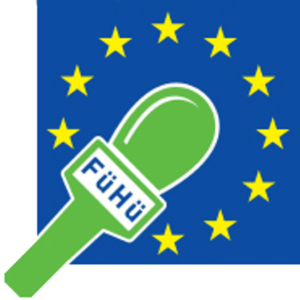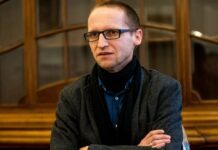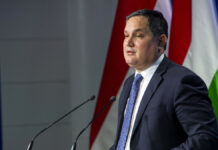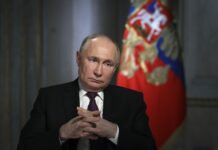It is not a democracy, where rules don’t apply to the wealthiest citizens, says Dean Starkman, an editor of Paradise Papers, the last wave of the giant offshore leaks. In an interview with FüHü, Starkman, fellow at the Center for Media, Data and Society at Central European University in Budapest and visiting lecturer at CEU’s School of Public Policy talked about the process of covering the leaks. He says the offshore system developed like a cancer, and he hopes that there will be other leaks. He also told us which name was the most surprising to him.
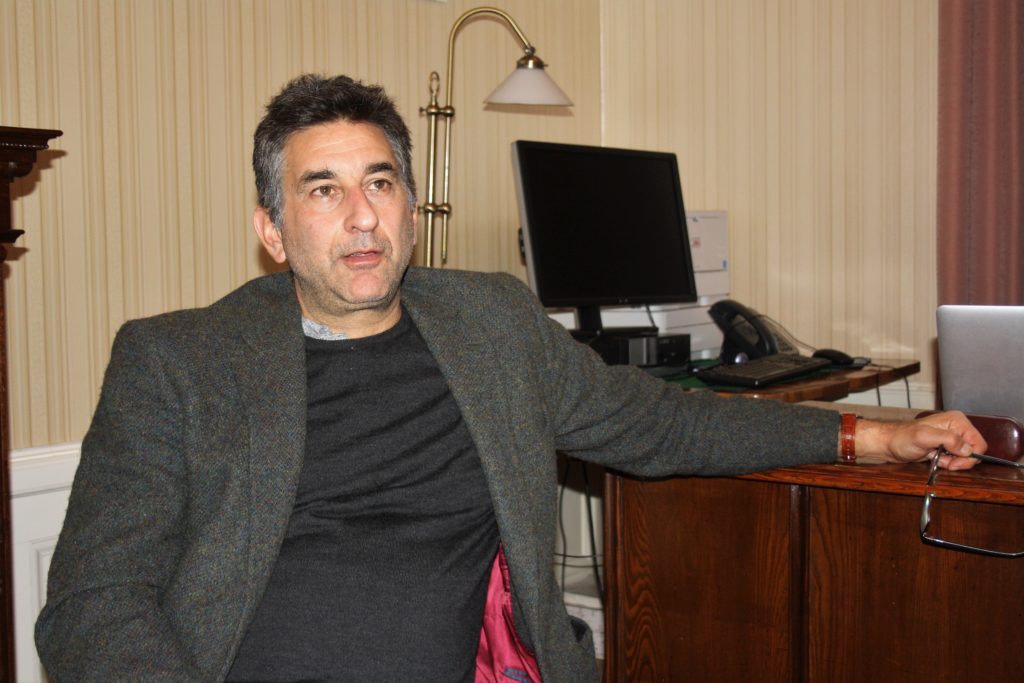

Photo: FüHü
How did you get in touch with the International Consortium of Investigative Journalists, the group that covers the Paradise Papers?
I’ve been a journalist in the U.S. for a long time, in investigative circles, and it is a relatively small world. The fact is that I knew pretty well some people who were already working there. Some people used to work for me and they are now at ICIJ. And a senior editor at ICIJ, Mike Hudson was a subject of the book I wrote about the financial crisis. So I guess, I was known to them and then they called.
What was your task?
They had already been under way for more than a year with the Paradise Papers and I was pretty unaware of it. My task was essentially editing, I was a content editor, I would say. It was to shape and help guide a few stories. That was my role.
We are talking about 13.4 million documents. How many journalists, how many teams were needed to process all of them?
ICIJ is a fairly small operation with a dozen people or so, but it does have some of the leading data journalists in the world.
They are very accomplished and are basically experts in managing, processing and analyzing mass data leaks.
I am not a technical expert at all, but that can be a very complex business, because data come in all source of forms. They have their own set of skills, and there is the ICIJ model, which is quite unique: it is basically forming a professional collaboration of dozens and dozens of news organizations.
These organizations already exist, they have staff, reporters and lawyers and everything else. So they are able to leverage their small size with this larger network.
At the end it was 94 news organizations.
And the beauty is that everybody, like the Direkt36 in Hungary, Le Monde in France, CBC and CTV in Canada, The New York Times in the U.S., each one can go in and have an eye for what they think is interesting for their market. That’s really cool.
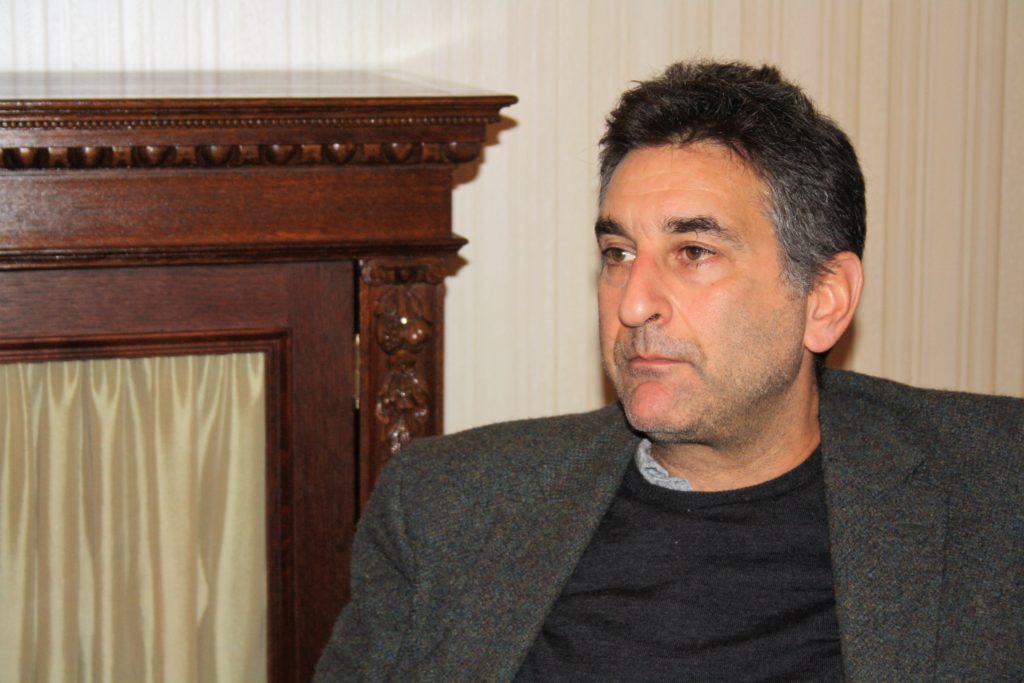

You really have to be Canadian to understand who Stephen Bronfman is – the people behind Seagram’s, one of the leading families in Canada. Most people wouldn’t know who they were, they would just go over their name. And it happens all over the world, so they need smart reporters with different eyes on the material, with own perspective, experience. And they are able to pull stories. It’s a wonderful model.
How did they select the contributors, those outlets, those journalists who could work with them?
I wish I knew exactly the criteria. The thing is that these are established news organizations that have earned their reputation over the years. These are highly sensitive documents, right? It is a scenario that requires a high degree of professionalism. You don’t just need to be secure of hacks, you have to know how to work together.
You got this network around the world. Everybody is working together towards a single launch date. In this case it was November 5th. Nobody can let it slip out beforehand, even if they have a great story and there is competition, or whatever the pressure is. Also, when you are reporting on this stuff, you can’t call somebody who may call somebody else, and then the substance of the project is revealed before we wanted it to be.
Of course, the subjects are given enough time to react, to yell, scream and threaten,
but you want to decide about the moment when it is revealed. It is not only Appleby that doesn’t want its proprietary stuff leaking out, neither do we.
We have 94 moving parts around the world, and you have to be able to trust them.
These have to be trustworthy operations
that are disciplined and know what they are doing. I am just a hired hand there, but you have to be able to trust the others that they are not going to screw it up, make big mistakes, libel somebody, or get major facts wrong. That’s the trick of this.
Let’s go back to security. You mentioned that you wanted no leaks. What kind of security measurements did you have to prevent these?
Well, it is beyond my technical expertise. But to join ICIJ, to belong to their network requires a learning curve, probably all journalists need to do it. You recommend a lot of things to journalists to keep their communication and material secure. All of those tools are deployed, including encryption.
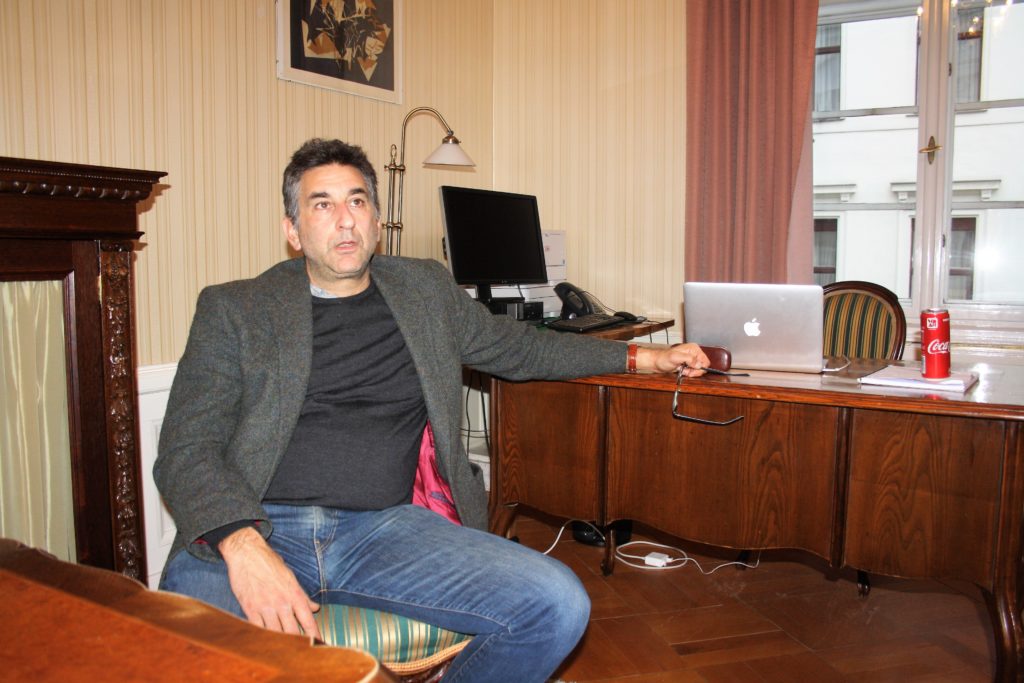

However they hardened their virtual workspace, which is where people act around the world, is obviously critical, because all of those sensitive documents are online somewhere, they have to be, because not all people work in the office, they are not in Washington.
They think a lot about it, there are many emails, conversations about it, whether some people want to phish us or hack us and all those things. The proof that it worked was that everything was secure until the launch.
You know who the first one was to leak that an investigation was going on? Appleby itself, the firm from where half of the documents came. After they had been contacted, they issued a press release.
There is one question that everyone wants to know the answer to: how did Süddeutsche Zeitung receive these documents? Can you say anything about it, or is it top secret?
Yes, top secret, but the fact is that I don’t have any idea. (laughing)
And about why it was the Süddeutsche Zeitung that received them?
I don’t know specifically, but they were also the recipients of the Panama Papers. Once you get a reputation of being able to handle something like this, then the next guy who comes along will probably try you.
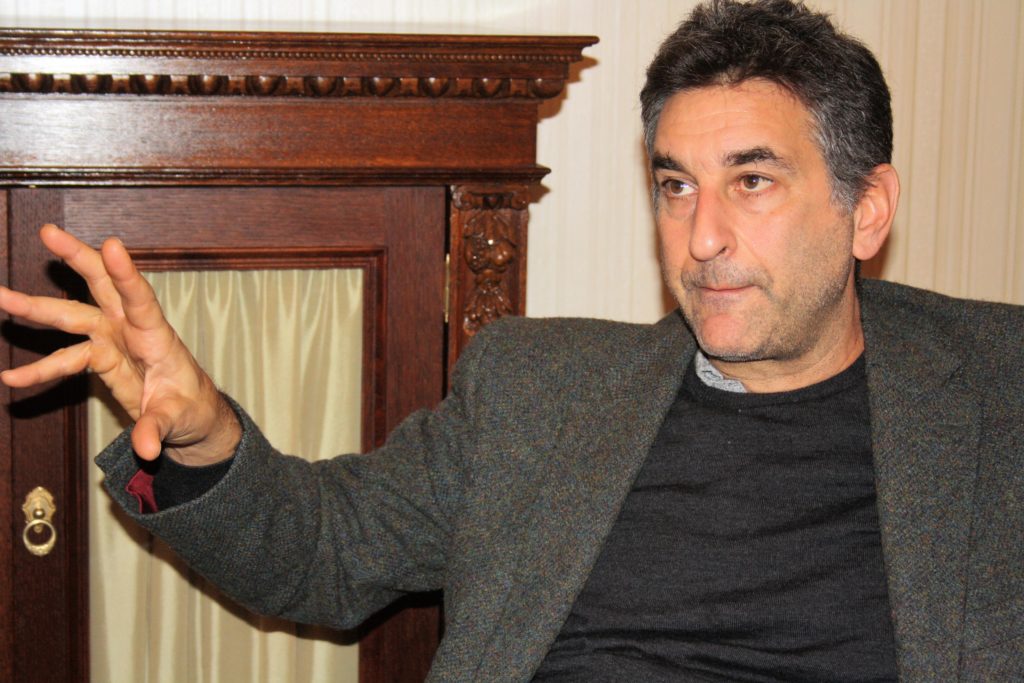

That’s how it works: whistleblowers, whoever they happen to be, and I really have no idea who gave Süddeutsche Zeitung this material, they are exposing themselves, in some cases to a pretty extreme degree. They want to make sure that the handoff goes smoothly, that they are protected, that it is not retraced to them, that the risk they took will have some meaning, it will result in what they were looking for with the exposure of that stuff. These are not random choices of who gets such data.
Was there a verification process? Well, I am sure that there was, but were there any fake documents in the material?
Yeah, before you even begin with anything you have to do it. What if you had worked for a year and a half and then you discovered that the entire thing was a hoax. Or if Appleby could demonstrate that it is a complete forgery. That would be a disaster.
So verification is the first thing they do, but I don’t know what they did to do that, it was before I got there.
Why do you think uncovering offshore businesses is important?
For two big reasons: a practical and a moral reason. On a practical basis,
an enormous portion of the world’s wealth is hidden offshore.
It is difficult to know how much it is, but I’ve seen estimates up to 32 trillion dollars. That’s money that is for the most part untaxed, withheld from the public treasuries around the world, meaning that everybody who is not in this system has to make up the difference. This contributes enormously to inequality.
It is not just that people aren’t paying their fair share of taxes, but it leaves people who are already wealthy in control of wealth they obtained using the infrastructure that the rest of us pay for.
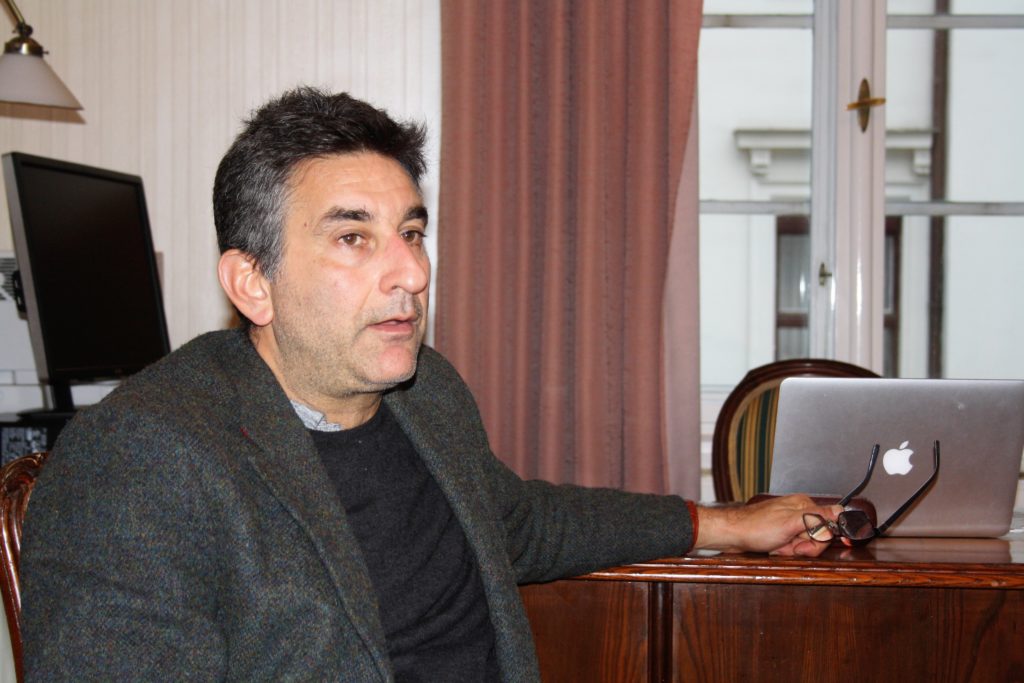

The other part of it: it is by definition inherently unfair. It throws the very legitimacy of the system into question. It raises the question about whether democracy can function if it is unable to enforce the law against its wealthiest citizens.
If the wealthiest citizens aren’t the subjects of the same rules and regulations as the rest of us, well, then we are not living in a democracy any more.
If we value democracy, then its rules have to apply to everyone. If they don’t, then people lose confidence, and if people lose confidence in a democracy, then we don’t have one.
There were 120 thousand names in these documents. Which one was the most surprising to you personally?
Well, Prince Charles and the Queen… Or Bono. It’s a surprise, because he is also a crusader for social justice, in a serious way. But still, I think Wilbur Ross, he is a sitting U.S. cabinet member. The prominence of the names is what gave the project its power.
Did any of the affected persons threaten with a legal process?
Probably all of them did. (laughing)
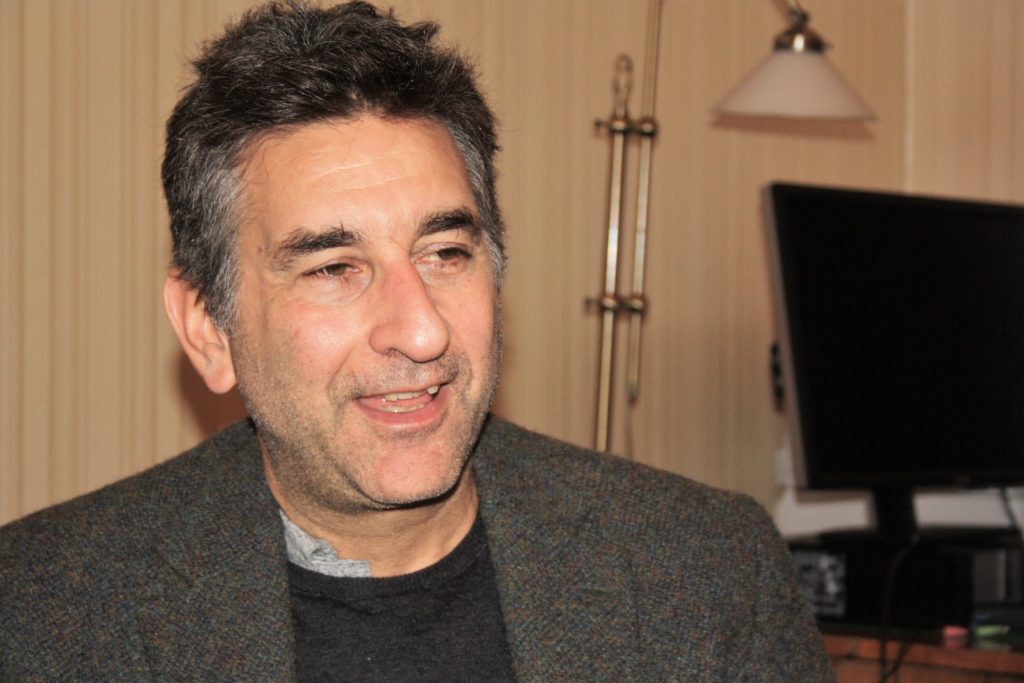

Did they just threaten, or have they already started with it?
I am not aware of any. The part of the process is that there shouldn’t be any surprises. So, everybody who is involved had a very detailed idea of what was coming. That process is not supposed to be ping-pong, it is a serious discussion. It has a lot of benefits to everybody, especially to news organizations which have the obligation to be as fair as possible.
Secondly, the subjects you are presenting this material to are the ones with most interest of anybody in the world to point out errors. So, you want people to verify and prevent you from making mistakes. You don’t want to have a number or a title wrong, you don’t want to have anything wrong.
If the story is caught weak end, because somebody points out something that you got wrong, so be it.
Anyway, that’s the nature of the whole process. Subjects react and respond.
Do you think that there will be any consequences for these persons? Because the Panama Papers had quite a few consequences…
I wouldn’t speculate, but I think that there is a general public awakening to issues of income inequality and the role of offshore systems in it. Honestly, it is thanks to ICIJ that this is on the public agenda at all.
Nobody was talking about the offshore system, and it developed like a freaking cancer.
In 30 years it’s become like a giant tumor in the financial system.
It’s a big business. We’re talking about an extreme amount of money that made its way out of the individual countries into tax havens. I don’t think that can last. I really don’t think.
Let’s talk a bit about the contributors again, in terms of their personal safety. Many of the journalists working on the project come from countries where the personal safety of journalists is not of paramount concern of the authorities. Do you know of any threats that the contributors received?
We all know about the Maltese journalist who was killed by a car bomb, apparently for her reporting on the Panama Papers. You know, that is a possibility for almost anyone, anywhere. But most of the risk is not lethal, that’s for sure, rather legal.
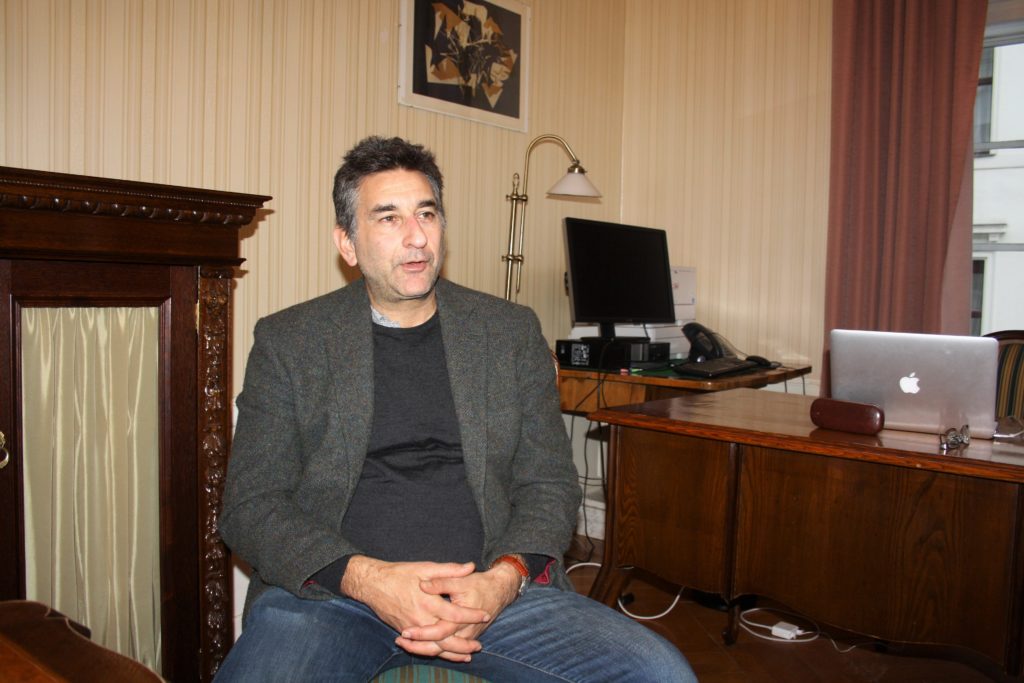

There are some countries, like Hungary, where journalists are attacked personally, by name by the government-leaning press, and
it is very disgraceful and really pitiful.
That’s a risk as well. Or journalists face illegal surveillance, or legal surveillance, they face hacks… There are risks, but generally it is safe to say that in countries where rule of law is better established, the risk is lower. In places like Russia, they are much-much higher.
Are there any individuals, organizations that support this research?
Yes. I don’t know who they are, but they are available on the ICIJ website.
So, the system is transparent?
It has to be. It is not a shoestring operation, but it runs on a fairly tight budget. If you are very independent, it means that you probably will not have a lot of money lying around. That’s the way how our system is set up right now.
This was not the first wave of the offshore leaks. Do you think that there will be more waves?
I certainly hope so. Again, I’ve been working for them for a few months, but I had been a fan long before that.
The place has pulled off a series of mega-leaks in a row.
The first big one was called Offshore Leaks, then there was LuxLeaks, SwissLeaks and then there was the Panama Papers.
These were massive, giant data leaks of highly confidential material. And just when you think that it can’t go on, then the Paradise Papers comes out. It is true that one leak does lead to another. People around the world, with access to data see this and say: hey, I am working for an institution that is also doing something wrong, let’s see what I can do.
So, the answer is: I don’t know whether there will be any more leaks, but I hope so.
